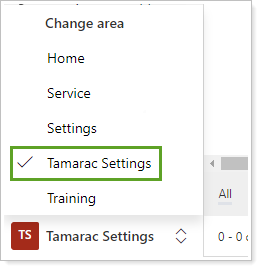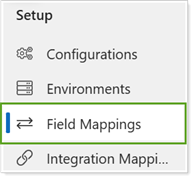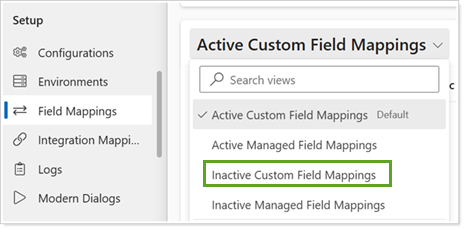Contents
|
Custom Fields Available for Mapping View and Manage Custom Field Mappings in Tamarac CRM |
Introduction
Custom fields in Tamarac Reporting allow you to capture details unique to your firm that the system does not include by default. For example, if your organization assigns internal account codes to distinguish management styles, you can create a custom field to track and report on these account codes in Tamarac Reporting.
By mapping the same client or account information from Tamarac Reporting to Tamarac CRM, you can better synchronize records across both systems, ensuring seamless tracking of custom data between Reporting and CRM.
This page provides information about the custom field integration. For steps to use it, see Manage Custom Field Mapping.
Before You Start
To map custom fields from Tamarac Reporting to Tamarac CRM, the following criteria must be met:
-
You must be a CRM Data Manager by having the assigned Security Role Tamarac Data Manager (Managed), or you must be a CRM System Administrator. To learn more, see Create Users in Dynamics 365.
-
Household and Financial Account Data Integration must be enabled in Tamarac CRM. Typically, this is done during the initial setup of your site. To learn more, see Enabling Tamarac Platform Integrations.
-
You must have custom fields created for Households, accounts, or groups in Tamarac Reporting. To learn more, see Custom Fields for Accounts, Groups, Households, and Securities.
The custom field mapping views will appear for a user under Field Mappings only when the criteria are met. The custom field mappings are separate from the existing managed field mappings that are created during firm onboarding.
Data Managers and System Administrators can access and maintain the custom field mappings, but only System Administrators can delete mappings.
Custom Field Synchronization
Mapped custom fields sync between Tamarac Reporting and Tamarac CRM automatically. As you update records on one system, the custom fields update in the other system bi-directionally.
| Tamarac Reporting | Direction | Tamarac CRM | Sync Frequency |
|---|---|---|---|
| Household custom fields |

|
Account | Immediately on change being made |
| Account custom fields |

|
Financial Account | Immediately on change being made |
| Group custom fields |

|
Reporting Group | Immediately on change being made |
| Account and group custom fields |

|
Financial Account or Reporting Group based on field addition to form | Immediately on change being made |
Custom Fields Available for Mapping
There are several types of fields available for use in custom field mapping. You can create custom fields in Tamarac Reporting and corresponding custom fields are pre-built in Tamarac CRM for use in the mapping process.
Although you can create custom fields in both Tamarac CRM and Tamarac Reporting, this integration doesn’t use custom fields created in CRM. Instead, it maps custom fields from Tamarac Reporting to unique CRM fields created for this integration.
You can map up to five of each Tamarac Reporting field type to a corresponding field in Tamarac CRM. One mapping from Tamarac Reporting will use one of the unique integration fields.
For example, when you map a custom field from Tamarac Reporting that is a string, it is mapped to one of the corresponding unique string fields created in Tamarac CRM.
To review each of the Tamarac Reporting field types with their corresponding unique CRM mapping field, see Custom Field Reference Guide.
If you are interested in having additional custom fields added for mapping use in the future, submit a feature request via the Suggestion Box.
Custom Field Equivalents
The custom field types that are set up in Tamarac Reporting do not map identically into Tamarac CRM, but instead they map into equivalent field types to maintain the integrity of the data.
The following field types will be mapped from Tamarac Reporting and reflect in Tamarac CRM accordingly:
| TAMARAC REPORTING | TAMARAC CRM |
|---|---|
| String | Single line of text |
| Number | Whole number or decimal number |
| Percentage | Decimal number |
| Date | Date and time |
| Yes/No | Two options |
View and Manage Custom Field Mappings in Tamarac CRM
Custom field mappings are available for review and management in the Tamarac Settings area under Setup and Field Mappings.
The following System Views are available:
-
Active Custom Field Mappings
-
Inactive Custom Field Mappings
To access the custom field mapping views:
-
In Tamarac CRM, under Change Area, select Tamarac Settings.

-
Under Setup, select Field Mappings.

-
By default, you will see all Active Custom Field Mappings. To review custom field mappings that have been deactivated, select Inactive Custom Field Mappings from the menu.

View Mapping Status in Tamarac Reporting
Under Custom Fields in Tamarac Reporting, the column Mapped in Tamarac CRM provides real-time tracking of a custom field’s integration with Tamarac CRM. This status automatically updates as you map custom fields, helping prevent modifications that could disrupt data synchronization.

The Mapped in Tamarac CRM statuses impact edit and delete permissions accordingly:
| Mapped in Tamarac CRM | Status | Edit/Delete Functionality |
|---|---|---|
| Yes | The custom field is mapped to Tamarac CRM and is marked as In Use, even if the mapping is deactivated in CRM. | You cannot modify the Field Name or Default Value or delete the custom field. To edit or delete this field, you must first delete the mapping in CRM. |
| No | The custom field is not mapped to Tamarac CRM. | You can edit and delete the custom field as usual. |
For more information about managing custom fields in Tamarac Reporting, see Custom Fields for Accounts, Groups, Households, and Securities.
Add, Remove, or Edit Custom Fields
You must configure Tamarac CRM to map and see custom fields.
For steps to add, remove, or change a mapped custom field from Tamarac Reporting to Tamarac CRM, see Manage Custom Field Mapping.
